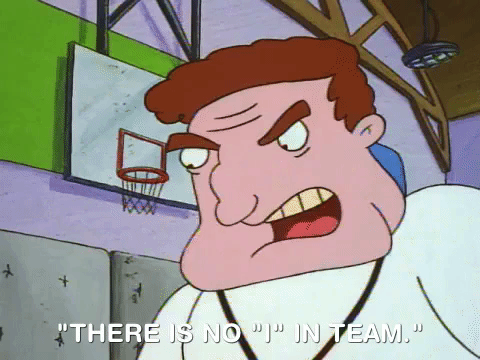Since only Beyoncé is truly perfect, you can bet on receiving some constructive criticism throughout your life. Whether your English professor scrutinizes your B- literary analysis or your parents comment on your blasé attitude, constructive criticism often feels discouraging and confrontational. No one likes hearing they performed poorly or did the wrong thing. However, constructive criticism (when done right) creates positive change in your abilities and won’t bring you down. Constructive criticism looks like a version of tough love.
What exactly is constructive criticism?

Constructive criticism acts as the change needed to kickstart improvement. It consists of helpful, specific suggestions encouraging positive changes in your abilities. Receiving constructive criticism proves difficult because the concept includes opposing connotations. How can criticism possibly construct you?
On the “constructive” side, advice works in your best interest and points out areas for improvement. On the “critical” side, suggestions can come across overly analytical and discourage you. The key to effectively handling constructive criticism lies in striking a balance between the two sides.
When handled correctly, constructive criticism acts as a fantastic teaching tool. It helps people learn from their mistakes, guide them toward improvement and enhance overall performance. “When students receive clear, accurate and articulated information about their performance at the end of each year, then their performance and efficiency improve. In this way, report cards act as one of the greatest motivational tools ever devised,” said Dr. Jeffrey Spence, associate professor of industrial and organizational psychology at the University of Guelph.
Remember Improvement Never Stops

Your hastily-written research paper finished at 3 a.m. on the due date probably won’t receive a perfect grade. My best guess says you won’t perfectly adjust to your new job during week one at the office. Understanding improvement as a never-ending process allows you to be more receptive and open to receiving constructive criticism in the future. “I used to get really disappointed with myself when my employer criticized my work. I wish I could go back and tell myself that you’re not expected to know everything, especially at an entry level job,” said Kelli Gemmer, marketing and communication manager at the Florida State University Career Center. No one starts out perfect at their job, so don’t let fear of failure scare you off.
Instead, learn from your mistakes, both big and small. Don’t run away from your teachers or employers’ advice. They have years of experience, so they likely know a thing or two about how you can improve. Take a deep breath, flaunt your confidence and ask questions.
Understand What Constitutes Solid Constructive Criticism

Stop yourself from feeling instantly resentful toward your supervisors and spend time breaking down the advice they gave you. Are the suggestions specific and geared towards your improvement? Or are they overly focused on picking out flaws? Solid constructive criticism leans toward the former rather than the latter.
Keeping this in mind will also benefit you when giving constructive criticism. Despite constructive criticism’s tendency to feel solely directed at you, effective constructive criticism requires work on both sides. “Straight up criticism is unpleasant and can lead to defensiveness. It in itself does not improve performance. What tends to work best is mutual goal setting between an employee and his or her supervisor,” said Spence. Supervisors should actively work with their employees to set realistic and challenging goals. Employees should not feel confused about their tasks and supervisors should constantly check in on progress.
Know How to Structure Effective Constructive Criticism

If you hold a position requiring you to dish out constructive criticism now and then, stay mindful of the way you structure your suggestions and advice. Implementing overly-critical feedback or having too high of expectations discourages productivity. On the other hand, too much praise can cause complacency and diminish chances of improvement. “It is important that the goal is challenging but not too challenging, otherwise the commitment to achieve the goal can wane and employees can feel discouraged if they are not making much progress,” said Thomas Anastasi, associate professor at Boston University’s School of Behavior and Organizational Psychology. Develop an action plan with your co-workers to set a positive tone and ensure receptiveness to feedback.
Embrace Constructive Criticism as Necessary Change

Change allows for improvement. Without change and challenge, no one improves, learns or grows. Constructive criticism highlights your weaknesses, but confronting areas of improvement head-on allows you to improve quicker and boost your confidence.
Instead of shying away from constructive criticism, learn to embrace and seek out hard-hitting feedback. By constantly exposing yourself to constructive criticism, your instinctual defensiveness will fade. You’ll become stronger and more adaptable. “One should never stop seeking out constructive criticism, as it’s important in the cycle of goal setting and work motivation. Once constructive criticism has helped someone come close or attain a specific goal, there should always be another goal or area of improvement to follow,” said Spence. Get ready to watch your life improve.



















